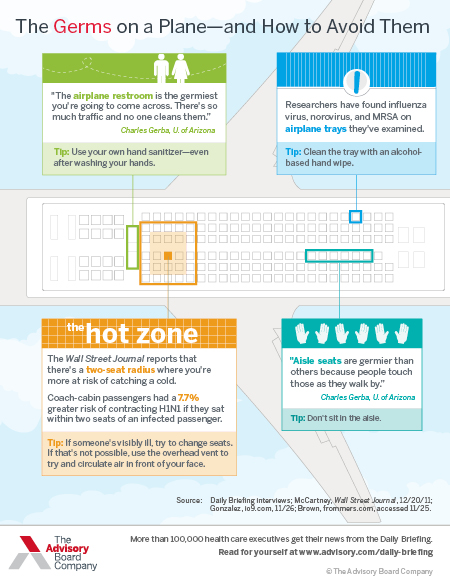Auto logout in seconds.
Continue LogoutDelusory parasitosis is the belief that one's body has been infested by insects or mites—and new research suggests it's more common than you might think, presenting doctors with a difficult task: telling patients it's more appropriate to seek treatment for delusions rather than infestation, Erika Engelhaupt writes for National Geographic.
An obsession with insects
Many suffers of delusory parasitosis, also called Ekbom syndrome, believe their body has been infested by insects or mites. Others say their body is infested by leeches or some other parasite.
Usually, there is an underlying condition behind the sensations, such as allergies or a reaction to a common drug, according to Engelhaupt. However, patients can develop an obsession over the sensation—and often the obsession focuses on insects, Engelhaupt writes.
After having made several doctor visits, sufferers of Ekbom syndrome usually find their way to an entomologist, who explains to them that there are only two kinds of arthropods that infest the human body: lice and a mite that causes scabies, both of which are easily identifiable and have recognizable symptoms, Engelhaupt writes.
Engelhaupt reports that patients often fill plastic bags with "samples of the 'bugs'" they've collected from their bodies, but in reality contain just dust, lint, hair, or skin.
In one case, Engelhaupt describes a patient who was convinced he had bugs with hard shells living in his body—despite a lack of evidence. The man would use tweezers to "dig in his nose ... pulling out bits of tissue and cartilage," Engelhaupt writes. The man dug until he made a hole in his septum, and now he whistles when he breathes.
Desperation is another symptom of the disorder, according to Nancy Hinkle, an entomologist at the University of Georgia who has worked with people who have the condition. "They call and say, Dr. Hinkle, you have to help me—I'm desperate," Hinkle said, noting people who come to her have usually visited several doctors.
More common than you think
Entomologists have said for years that cases of Ekbom syndrome are not nearly as rare as the general public might think, Engelhaupt writes, and a Mayo Clinic research letter published last month in JAMA seems to back that claim up.
The research suggests that about 27 out of 100,000 Americans each year suffer from Ekbom syndrome. Based on that figure, Engelhaupt estimated about 89,000 people in the United States currently have the condition.
How these patients are treated
Patients who present with Ekbom syndrome are typically examined to see if there is a physical cause—such as the insects in question—for their symptoms. If one isn't found, the doctors can prescribe medications to treat delusional thoughts. However, Mark Davis, a dermatologist at Mayo and an author of a 2012 study on the condition, said it can be difficult to convince these patients to take that medication. "They say, you're just saying I'm crazy, and I'm not," he said.
Sometimes talking to the patient's family can be useful, according to Gale Ridge, an entomologist at the Connecticut Agricultural Experiment Station. "I ended up with 11 members of a family in a roundtable conversation," she said, which helped her patient get the treatment he needed.
Hinkle said she's learned patients are typically averse to mental health treatment and hearing it suggested makes them upset.
Ridge and Hinkle both said that handling cases of Ekbom syndrome can be emotionally exhausting. "Sometimes I can't turn it off," Hinkle said. "I can't go to sleep" (Engelhaupt, National Geographic, 6/22).
Next: The bacteria on a plane—and how to avoid them
Download this infographic to learn about both the obvious and less obvious locations where germs on planes are rampant.
Don't miss out on the latest Advisory Board insights
Create your free account to access 1 resource, including the latest research and webinars.
Want access without creating an account?
You have 1 free members-only resource remaining this month.
1 free members-only resources remaining
1 free members-only resources remaining
You've reached your limit of free insights
Become a member to access all of Advisory Board's resources, events, and experts
Never miss out on the latest innovative health care content tailored to you.
Benefits include:
You've reached your limit of free insights
Become a member to access all of Advisory Board's resources, events, and experts
Never miss out on the latest innovative health care content tailored to you.
Benefits include:
This content is available through your Curated Research partnership with Advisory Board. Click on ‘view this resource’ to read the full piece
Email ask@advisory.com to learn more
Click on ‘Become a Member’ to learn about the benefits of a Full-Access partnership with Advisory Board
Never miss out on the latest innovative health care content tailored to you.
Benefits Include:
This is for members only. Learn more.
Click on ‘Become a Member’ to learn about the benefits of a Full-Access partnership with Advisory Board
Never miss out on the latest innovative health care content tailored to you.

